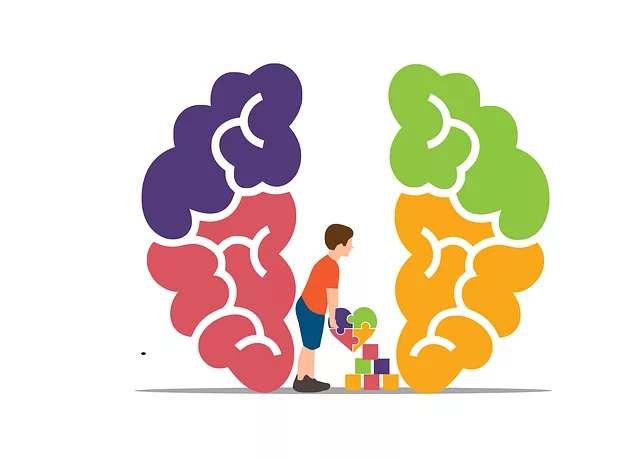Mental health policy analysis, focusing on Kaiser Permanente's Centennial centers, reveals opportunities for improvement in access, care quality and patient empowerment. Positive reviews highlight holistic approaches, emphasizing patient-centered care, confidentiality, and stigma reduction – key factors guiding advocacy for evidence-based practices like Compassion Cultivation and emotional regulation techniques. By reviewing services, wait times, and staff availability, policymakers can champion policy updates that expand mental healthcare accessibility, incorporating stress reduction methods to empower individuals with coping skills for improved well-being. Collaboration between Kaiser Permanente, community leaders, and policymakers is vital for implementing these strategies, revolutionizing mental health service delivery.
Mental health policy analysis and advocacy are paramount in ensuring equitable access to quality care. This comprehensive article explores these aspects through several lenses, beginning with an understanding of foundational mental health policies and their impact on advocacy efforts. We present a case study of Kaiser Permanente’s Mental Health Centers in Centennial, analyzing their effectiveness through reviews. The piece also discusses policy implications, offers recommendations for improvement, and underscores the importance of fostering collaboration to advocate for better mental health services.
- Understanding Mental Health Policy: A Foundation for Advocacy
- Kaiser Permanente Mental Health Centers: A Case Study in Centennial
- Evaluating Access and Quality of Care: The Role of Center Reviews
- Policy Implications and Recommendations for Improvement
- Fostering Collaboration: Advocating for Better Mental Health Services
Understanding Mental Health Policy: A Foundation for Advocacy

Mental health policy forms the backbone of support and care for individuals dealing with various mental health conditions. Understanding these policies is a pivotal step for advocates aiming to create positive change. By delving into the intricacies of mental health legislation, one gains a crucial toolset to influence and improve existing frameworks. This involves recognizing how policies impact access to services, funding allocation, and treatment approaches, such as those offered at Kaiser Permanente mental health centers in Centennial.
Policy analysis empowers advocates to identify gaps, challenges, or outdated practices. For instance, it can highlight the need for better integration of care, improved access to evidence-based treatments, or the implementation of conflict resolution techniques to address burnout among healthcare providers. By analyzing these aspects, advocates can propose strategic solutions that promote effective mental health services, enhance self-esteem improvement initiatives, and develop robust burnout prevention strategies tailored to the needs of both patients and healthcare professionals.
Kaiser Permanente Mental Health Centers: A Case Study in Centennial

In Centennial, Kaiser Permanente mental health centers stand as a beacon of hope and healing for many residents grappling with various mental health conditions. These facilities are renowned for their holistic approach to treatment, integrating evidence-based practices alongside patient-centered care models. Reviews consistently highlight the center’s commitment to accessibility, offering a diverse range of services tailored to different needs. The environment fosters trust through its emphasis on confidentiality and non-judgmental attitudes, significantly contributing to successful recovery outcomes.
Beyond exceptional clinical care, Kaiser Permanente mental health centers in Centennial exemplify effective communication strategies. They actively involve patients in decision-making processes, ensuring informed consent and promoting self-management skills. Moreover, these centers play a pivotal role in Risk Management Planning for Mental Health Professionals, implementing protocols that prioritize staff well-being and patient safety. Additionally, their initiatives on Mental Illness Stigma Reduction Efforts have been instrumental in fostering inclusive communities where individuals can openly seek help without fear of discrimination.
Evaluating Access and Quality of Care: The Role of Center Reviews

Evaluating access and quality of care is a pivotal aspect of mental health policy analysis and advocacy, especially when examining organizations like Kaiser Permanente in areas such as Centennial. Center reviews play a crucial role in understanding the landscape of mental healthcare services. These reviews provide insights into patient experiences, treatment effectiveness, and resource allocation within mental health centers. By analyzing feedback from patients and families, as well as assessing clinical outcomes, these evaluations help identify areas for improvement and ensure that mental health care aligns with best practices.
For instance, Kaiser Permanente mental health center reviews Centennial can offer valuable data on wait times, staff availability, and coping skills development programs. This information is essential for policymakers to advocate for evidence-based Compassion Cultivation Practices that enhance the overall well-being of the community. Such reviews contribute to a Mental Health Policy Analysis and Advocacy strategy by informing decisions related to resource allocation, service expansion, and policy updates, ultimately improving access to quality mental healthcare.
Policy Implications and Recommendations for Improvement

The analysis of mental health policies reveals several areas for improvement, particularly when examining renowned facilities like the Kaiser Permanente mental health center reviews Centennial highlight. One key policy implication is the necessity to integrate Emotional Regulation and Conflict Resolution Techniques into mainstream healthcare systems. These strategies should be accessible and affordable, ensuring that individuals can effectively manage their emotional well-being and resolve interpersonal conflicts without significant barriers.
Additionally, incorporating Stress Reduction Methods as an integral part of mental health services is imperative. This includes promoting mindfulness, meditation, and other evidence-based practices known to alleviate stress and anxiety. By fostering a holistic approach to mental healthcare, policies should aim to empower individuals with the tools needed to navigate life’s challenges, ultimately leading to improved overall well-being, as evidenced by favorable Kaiser Permanente mental health center reviews Centennial.
Fostering Collaboration: Advocating for Better Mental Health Services

Fostering collaboration among various stakeholders is a key aspect of advocating for improved mental health services, especially in communities like Centennial where access to quality care can vary widely. Organizations such as Kaiser Permanente mental health centers play a pivotal role in this regard, serving as hubs for connecting individuals with the support they need. By reviewing and understanding the services offered at these centers, advocates can identify gaps and areas for improvement, ensuring that the community’s mental health needs are met holistically.
This collaborative approach extends beyond healthcare providers to include community leaders, policymakers, and individuals with lived experiences. Together, they can champion initiatives that promote Inner Strength Development, enhance Emotional Regulation, and teach Coping Skills Development. Such efforts not only revolutionize access to mental health services but also foster a culture where wellness is prioritized, ensuring a brighter and more resilient future for all residents in Centennial and similar communities.
Mental health policy analysis and advocacy are vital components in fostering collaboration and improving access to quality care. The case study of Kaiser Permanente mental health centers in Centennial highlights the importance of comprehensive policy implications, as evidenced by their successful model. By evaluating center reviews and understanding mental health policy frameworks, we can drive positive change. This includes advocating for better services, ensuring equitable access, and promoting holistic approaches to treatment. Integrating these strategies will revolutionize mental healthcare, benefiting folks across the nation, especially in bustling urban centers like Centennial.






